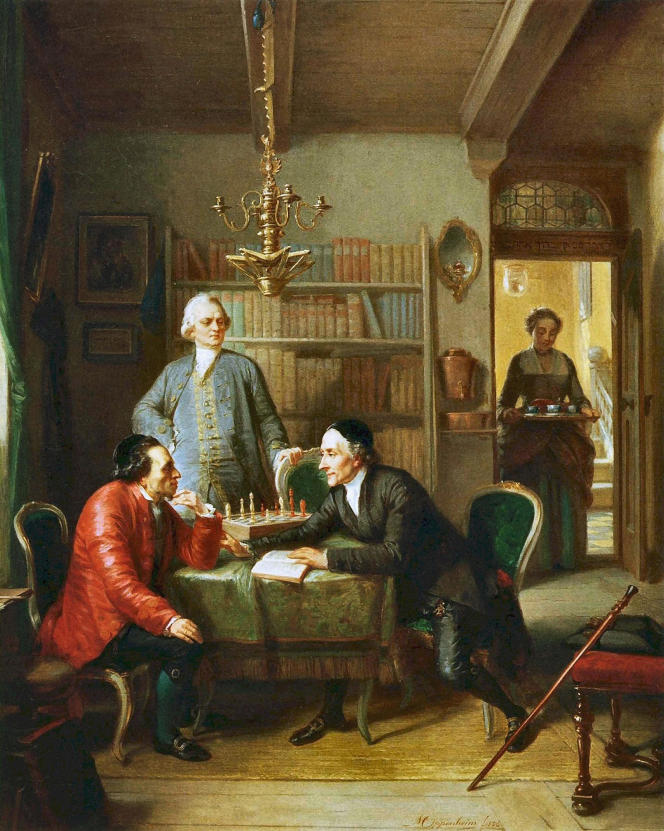“Morning hours. Lessons on the existence of God” (Morgenstunden oder Vorlesungen über das Dasein Gottes), by Moïse Mendelssohn, translated from German and edited by Olivier Sedeyn, PUF, 320 p., €18, digital €15.
Behind an enigmatic title, Morning hours. Lessons on the existence of God, hides one of the most important works bequeathed by the German Enlightenment (Aufklärung) to modern philosophy. As its translator, Olivier Sedeyn, who is also a specialist in the political philosopher Leo Strauss (1899-1973), says, this text represents one of the last efforts to achieve a direct knowledge of metaphysical truths, before Kantian criticism comes to sweep away the pretensions to the intuition of “things in themselves”. The release dates speak for themselves. Moses Mendelssohn (1729-1786) publishes his Morgenstunden oder Vorlesungen über das Dasein Gottes in 1785, more than fifteen years after the Phaedo or Talks on Spirituality and the Immortality of the Soul (1767), which made him famous throughout learned Europe, at the very time when Emmanuel Kant, from 1781 to 1786, was working on the various editions of his Critique of pure reason. The second will write, in an ambivalent tribute, that the Morning hours constitute in his eyes “the last legacy of a dogmatic metaphysics” and his “most perfect product”.
In France, Mendelssohn has since been read through the prism of Kantianism and considered a secondary or outdated thinker. If Pierre Tavoilot translated three chapters ofMorning hours for the anthology The Twilight of Lights (Cerf, 1995), it is only today that this major work is fully available in French. Olivier Sedeyn nevertheless considers it a milestone “indispensable if one wants to understand Kantian thought” and much more than that.
“I know that my philosophy is no longer up to date”
Moïse Mendelssohn, to whom the Germanist Dominique Bourel devoted a masterful biography in 2004 (Gallimard), was immediately aware of the “untimeliness” of his Morning hours : “I know that my philosophy is no longer up to date”he confesses in the foreword, even adding in a formula that has become famous that “Kant broke everything”. He says he still wants to transmit to the eldest of his six children, Joseph, as well as to some young disciples gathered around him at daybreak (before he resumes his activities as director of the Bernhardt silk factory ), the tradition of thought which remains his own, formed in the school of Leibniz and his heir Christian Wolff (1679-1754, viciously mocked by Voltaire in the guise of the optimist Pangloss in Candid). Like a bottle in the sea for the future, beyond criticism.
You have 67.33% of this article left to read. The following is for subscribers only.

